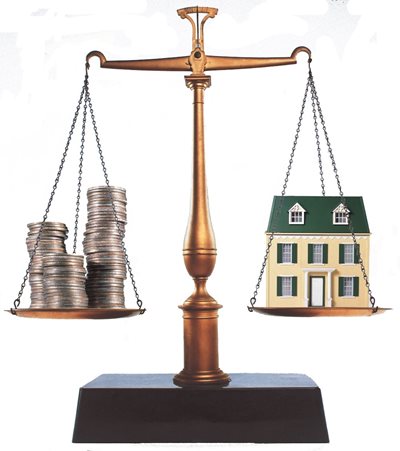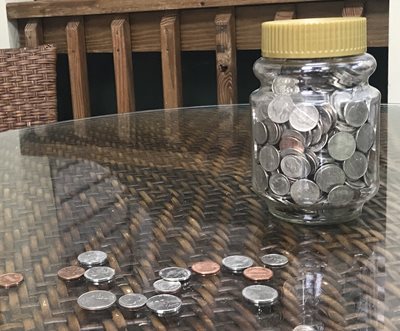Close to two-in-three adults in the United States don't have $5,000 saved for a financial emergency, NeighborWorks America's Housing and Financial Capability Survey has found. And only 42% of households making less than $30,000 a year have a bank account. But savings are key to pursuing a dream, whether it's a dream of homeownership, of owning a car, or even of a family vacation.
NeighborWorks network organizations, spread across every state and in Puerto Rico and Washington, D.C., work to help people build savings and assets, often through education.
 When's the best time to start saving? "Right now," says Nathalie Kallab Racimo, a homeownership and financial services counselor at Neighborhood of Affordable Housing (NOAH), a NeighborWorks network organization in East Boston, Massachusetts. "It may seem that there's never a good time, but the time to start is now, with whatever you have."
When's the best time to start saving? "Right now," says Nathalie Kallab Racimo, a homeownership and financial services counselor at Neighborhood of Affordable Housing (NOAH), a NeighborWorks network organization in East Boston, Massachusetts. "It may seem that there's never a good time, but the time to start is now, with whatever you have."
 When's the best time to start saving? "Right now," says Nathalie Kallab Racimo, a homeownership and financial services counselor at Neighborhood of Affordable Housing (NOAH), a NeighborWorks network organization in East Boston, Massachusetts. "It may seem that there's never a good time, but the time to start is now, with whatever you have."
When's the best time to start saving? "Right now," says Nathalie Kallab Racimo, a homeownership and financial services counselor at Neighborhood of Affordable Housing (NOAH), a NeighborWorks network organization in East Boston, Massachusetts. "It may seem that there's never a good time, but the time to start is now, with whatever you have."That's especially true this year, when the COVID-19 pandemic drained finances for many residents, and with most of those residents saying it will take six months or more to recover. One way NOAH helps individuals save is through a matched savings program where 35 people – most of them adults, but also a high school student – work on saving at least $50 a month for 10 months, says Diana Franco, director of homeownership services for NOAH. At the end, NOAH will give participants a matching contribution of up to $500, which will mean they've saved $1,000 to put toward a financial goal. Funding for Noah's Matched Savings Program came through a grant from NeighborWorks America, which realizes the importance incentives like matched savings play in creating new habits.
"We know that a big component of successful financial capability programs is linking financial products and services to financial coaching," says Molly Barackman-Eder, NeighborWorks senior financial capability manager. "Incentivized savings has the power to encourage someone to make the effort and save a little bit of money, consistently, to build up a rainy day fund. They can see the results of their hard work faster through the community's investment in them."
The program has been offered twice now and has a 100% retention rate. Even during the pandemic, NOAH's participants manage to save.
During the pandemic, Racimo says, many people relied on their emergency savings because of medical expenses or lost wages or reduced work hours. Those who didn't have savings recognized the need. "People are reaching out and saying, 'I wasn't saving. Now I want to learn how to save.'"
Explaining the need has been easier. "We don't have to create an imagined emergency situation; they've already faced it," Racimo says.
Counselors at NOAH provide encouragement to those who used all of their savings to deal with pandemic-related expenses, Racimo says. "We want them to understand that they had it and they used it for an emergency. Instead of being discouraged, they should say, ‘we had this.' We don't see it as starting over. We just want to encourage them to keep doing this."
Racimo offers these tips to individuals who want to start saving:

- Start now. There is no time like the present to begin saving, even if it's just a few dollars.
- Look for resources. Resources like matched savings programs and classes can help.
- Educate yourself. Remember that many organizations offer education for free; don't fall victim to a scam or to an individual who wants to charge you to learn.
- Revisit your budget. A budget is personal. If you don't have a budget or know how to make one, find a professional, like a HUD-approved financial counselor who can help you create a budget that makes sense. A professional can help you identify spots where you can save.
- Remember that a financial coach is for you, too. Saving is for everyone, not just wealthy people. There's assistance at every level.
NOAH offers its financial education courses in English and Spanish, which Racimos says is important. "When resources aren't available in your native language, it's harder to close the wealth gap," she explains.
Like NOAH, NeighborWorks network organizations offer courses and one-on-one coaching to help clients make sound financial decisions and to help them save to make dreams a reality.

